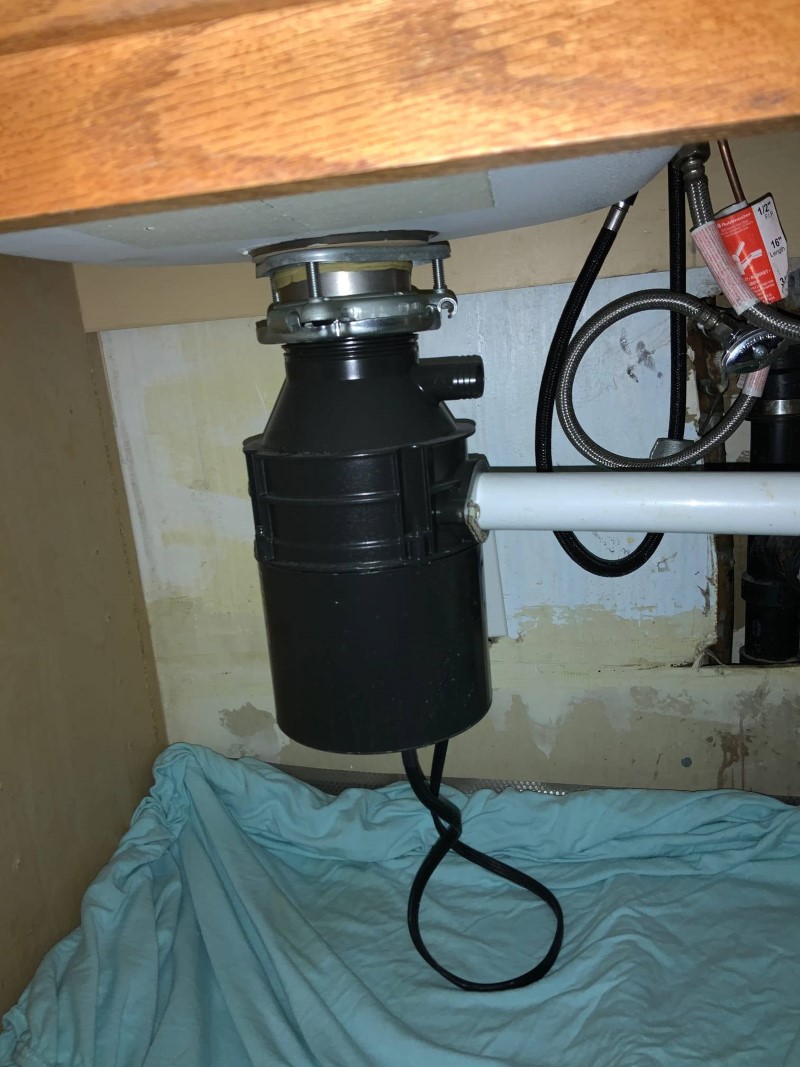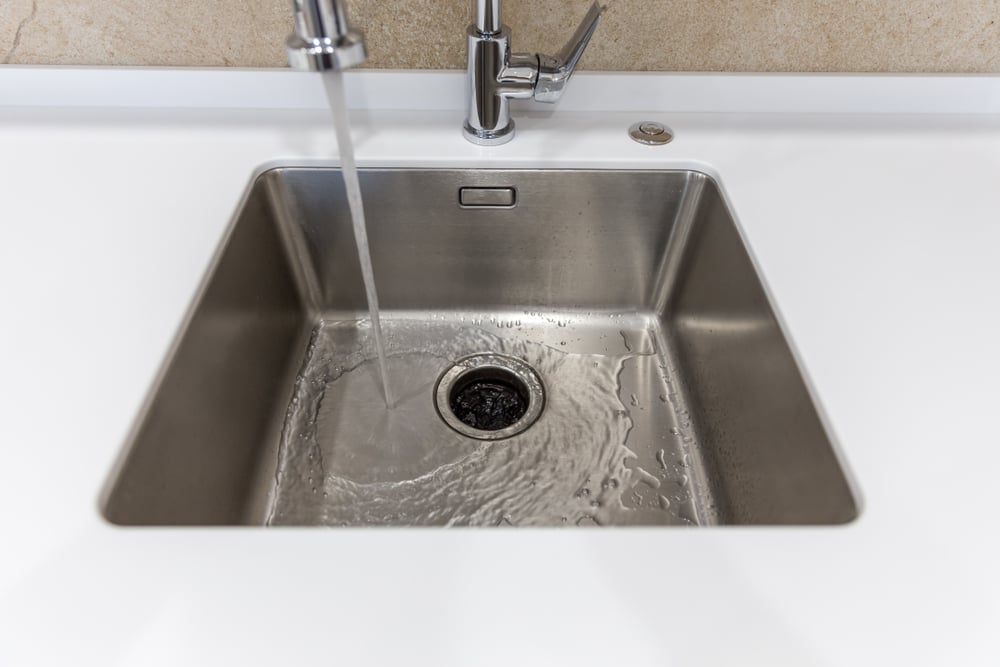Quick Fixes for a Dripping Garbage Disposal
Quick Fixes for a Dripping Garbage Disposal
Blog Article
Almost everyone will have their unique theory in relation to Tips on Fixing a Leaking Garbage Disposal.

Garbage disposals are important kitchen area appliances that help in dealing with food waste efficiently. Nonetheless, a dripping garbage disposal can be an aggravating and messy trouble to manage. Luckily, several leaks can be repaired easily with a couple of basic steps. In this write-up, we will certainly talk about how to deal with a dripping garbage disposal effectively.
Intro
Garbage disposals are installed under cooking area sinks and are developed to shred food waste into smaller sized pieces, permitting it to go through the plumbing system easily. While these gadgets are typically reliable, leakages can occur gradually because of damage, loose links, or damage to the device.
Step-by-Step Guide to Repairing a Dripping Garbage Disposal
Switch off the Power
Before trying any fixings, ensure that the power to the waste disposal unit unit is switched off to stop the danger of electrical shock.
Locate the Leakage
Identify the precise location of the leakage and figure out the reason
Tighten up Connections
Utilize a wrench to tighten up any loosened links between the disposal system and the pipes system.
Replace Seals or Gaskets
If the leakage results from worn seals or gaskets, eliminate the old components and change them with brand-new ones.
Patching Cracks or Openings
For splits or holes in the disposal system, usage epoxy or a suitable patching material to secure the broken area.
Determining the Resource of the Leak
Before trying to deal with a leaking garbage disposal, it is vital to identify the source of the leak. This can commonly be done with aesthetic examination or by conducting basic examinations.
Visual Inspection
Examine the waste disposal unit device carefully for any indications of water leak. Pay close attention to areas around seals, gaskets, and connection factors.
Examining for Leaks
One way to check for leakages is by running water through the disposal system and looking for any kind of visible indications of leak.
Common Root Causes Of Leakages in Waste Disposals
Worn Seals and Gaskets
Seals and gaskets play a crucial role in avoiding water from dripping out of the waste disposal unit. Gradually, these components can deteriorate, resulting in leaks around the disposal unit.
Loose Connections
The connections between the garbage disposal and the pipes system can come to be loosened with time, creating water to leakage out throughout procedure.
Splits or Openings in the Disposal System
Physical damage to the garbage disposal, such as cracks or holes in the real estate, can additionally cause leakages.
Devices and Products Needed for Taking Care Of a Leaking Garbage Disposal
Before starting the fixing procedure, collect the required tools and products, including a screwdriver, flexible wrench, plumbing professional's putty, substitute seals or gaskets, and epoxy or patching material for repairing splits or openings.
Evaluating the Garbage Disposal After Repair
As soon as the repair service is total, check the garbage disposal by running water through it to make certain that the leakage has been resolved.
Preventive Upkeep Tips to Prevent Future Leaks
To stop future leaks, it is necessary to perform regular upkeep on your garbage disposal. This consists of maintaining it clean, staying clear of putting non-food items or tough items down the disposal, and periodically looking for leaks or other concerns.
Final thought
Finally, taking care of a leaking waste disposal unit is a fairly uncomplicated process that can be finished with fundamental devices and products. By following the actions described in this write-up and practicing preventative maintenance, you can maintain your garbage disposal in good working problem and avoid pricey repair work in the future.
HERE’S HOW TO FIX YOUR GARBAGE DISPOSAL
WHAT TO DO IF SOMETHING IS STUCK IN YOUR GARBAGE DISPOSAL
If the impeller won’t turn, there’s probably something stuck in the disposal. It could be a steak bone or peach pit, although plumbers report pulling all sorts of inappropriate objects out of disposals, such as bottle caps or aluminum foil. Make sure power to the disposal is off, and look inside to see if you can see the source of the jam.
Never stick your fingers in a disposal. Pull out anything you see with tongs or pliers.
If the disposal still won’t work, it may be time to call a plumber or consider buying a new disposal. GEM Plumbing & Heating is here for all of your garbage disposal needs.
WHAT TO DO IF YOUR GARBAGE DISPOSAL DRAIN IS CLOGGED
Take everything out from underneath your sink and put a bucket or other container under your disposal to catch any water that drains out. Disconnect your disposal from the power supply. If it’s plugged into a wall outlet, unplug it. If it’s hardwired into an electrical box, go to the electrical panel and turn off the breaker for the disposal. Pour ¼ cup of baking soda into the drain, followed by ½ cup of white vinegar. Give the solution a few minutes to fizz and do its work. Look into the disposal with a flashlight to see if you can see an object that might be causing the clog. If you see it, remove it using tongs or pliers. MORE TIPS ON DEALING WITH A CLOGGED GARBAGE DISPOSAL
Never use drain cleaner in a garbage disposal. It can damage the plastic parts inside the disposal. You can also be splashed with the caustic liquid while working to clear the clog. Beware! Never stick your fingers into a garbage disposal. Trust us — not a good idea. In many instances, your dishwasher drains through your garbage disposal. This allows the disposal to grind any large food particles that may be drained out of your dishwasher. There are some jurisdictions, however, where the plumbing code prohibits such a connection. WHAT TO DO WHEN YOUR DISHWASHER DRAINS THROUGH THE DISPOSAL
Run some water in the sink so your plunger has at least a ½-inch of water to create a seal and plunge vigorously up and down several times. You may need to repeat this several times. Run hot water down the drain to clear any residue that remains.

Do you enjoy reading up on Why Is ? Write feedback further down. We'd be glad to see your views about this blog posting. Hoping that you visit us again in the future. Are you aware of anybody else who is sincerely interested in the topic? Feel free to promote it. Thank-you for going through it.
Click Here Report this page